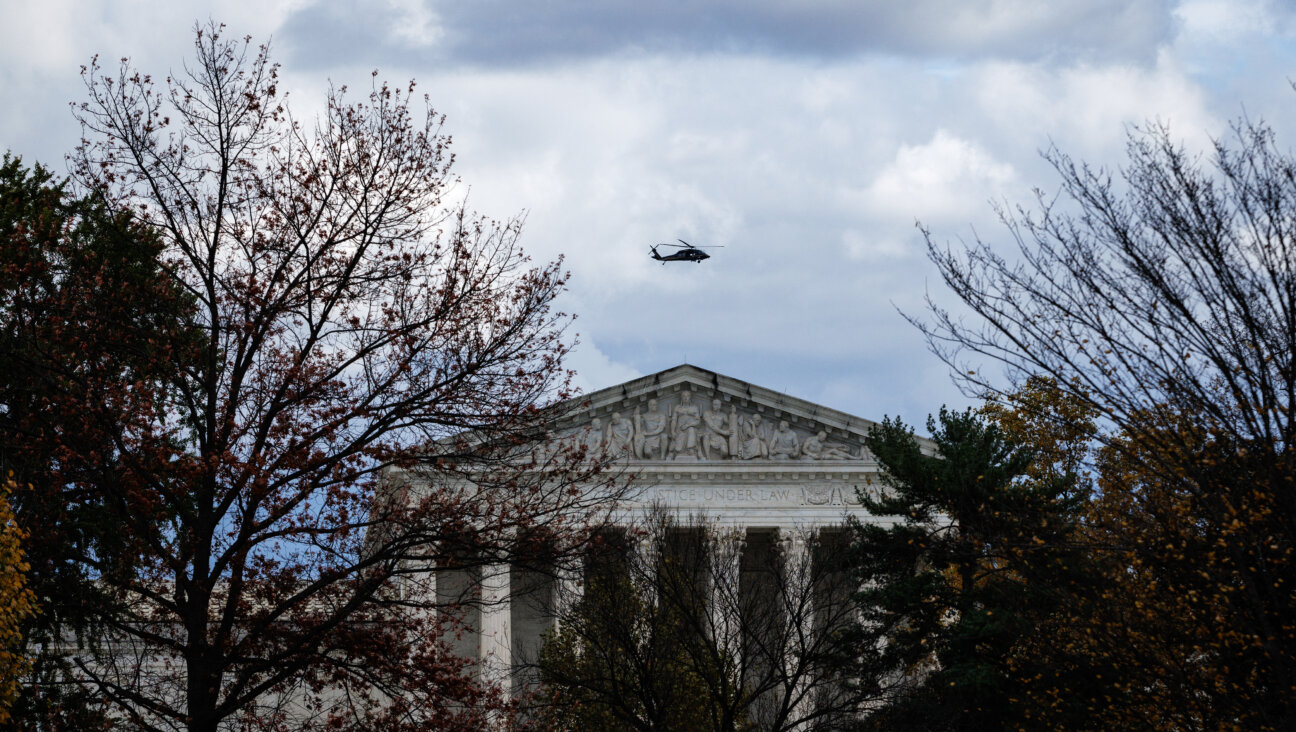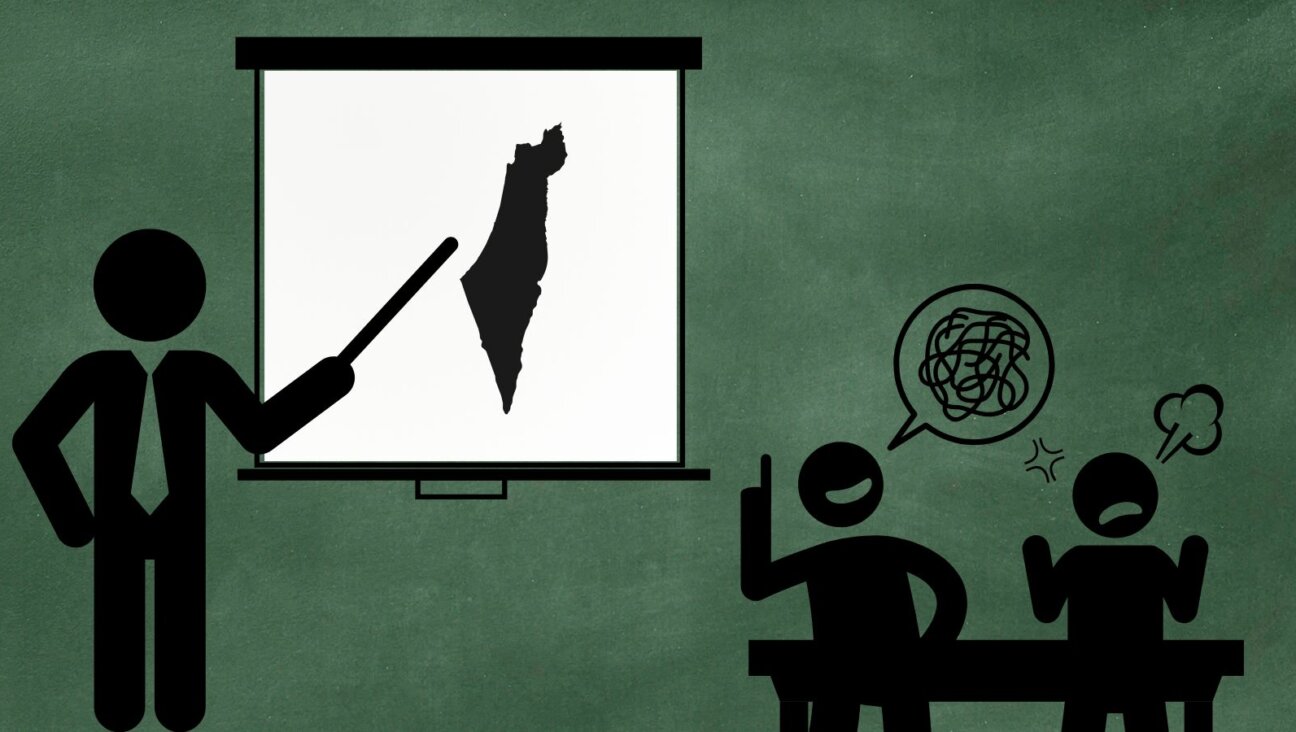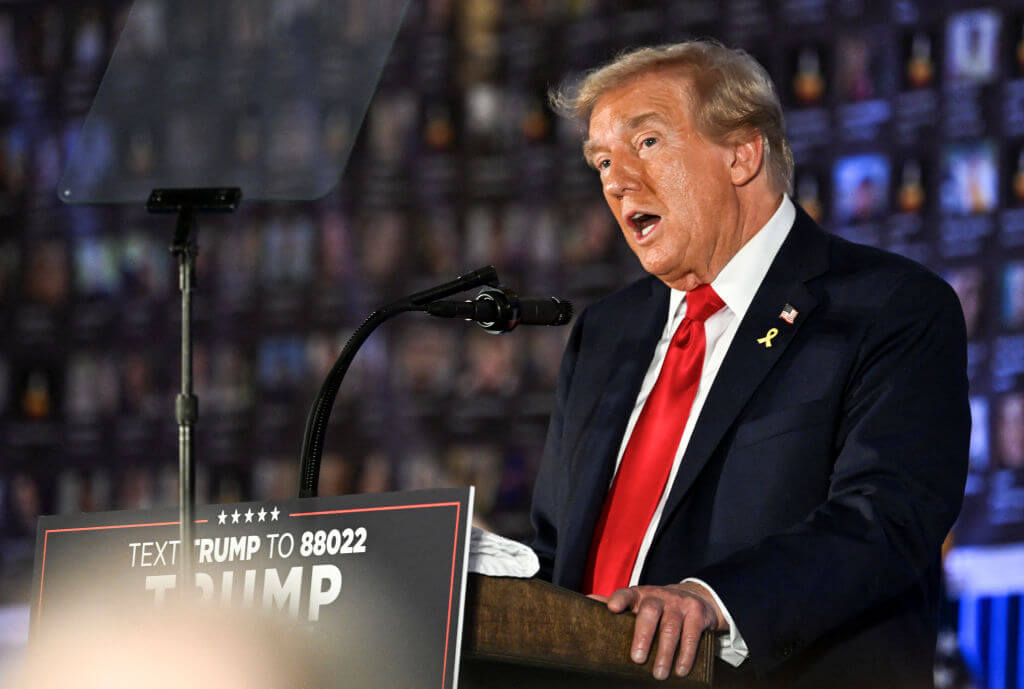Why Donald Trump Sounds Smarter in Russian

Image by Getty Images
Considering how often President Donald Trump praises Vladimir Putin and suggests that close cooperation between Russia and the U.S. would be a good thing, it is strange that there is so little American media coverage of how Trump is coming across in Russia.
A rare exception was when David Filipov, the Moscow bureau chief for The Washington Post, offered a tantalizing glimpse of what ordinary Russians wonder about when he told Public Radio International that Russians seem confused by something basic: the pronunciation of the President’s last name.
“I was on a radio show and it was one of those shows where people call in and somebody asked me, Does Trump’s name mean a woman of loose morals and I’m like, “What are they talking about?!” Filipov told Public Radio International.
“Then I realized they thought “tramp” like “the lady is a tramp,” Filipov said.
Like the Frank Sinatra song, another guest interjected. It turns out there is no “u” sound in Russian, so it gets transliterated into “tramp.” Coupled with news stories about prostitutes as well as the infamous grabbing episode, the caller’s query doesn’t seem that far-fetched.
But then, plenty of Russia-related statements uttered by Trump are unimaginable in the mouth of any other American president — and if Americans are confused, it seems reasonable that Russians are confused too.
Of course, during the campaign, Trump praised Putin as a strong leader, sending chills up and down spines in the international foreign policy establishment.
Now, perhaps, it’s time for Russia to return the favor with a glowing portrayal of the new U.S. President. So how exactly is Trump faring in the Russian press?
“Here in Russia, Trump is being translated at a higher register, so he sounds much better, much more statesmanlike, and much more coherent in Russian than he does in English,” says Michele Berdy, a columnist who writes about Russian language, culture, and translation for The Moscow Times and Russian Life, as well as a Russian translator.
“For example, in the tweet about Australia, the “dumb deal” was — when back-translated — more like “hellish deal” or “damn deal” — which sound a bit more adult than “dumb deal,” says Berdy.
“The “bad hombres” were “bad guys.” And so on,” Berdy adds.
And translators are struggling to translate Trump — mirroring the situation in other countries, as previously covered in The Forward.
“I noticed that the poor translators didn’t know what to do with “going nuclear” or using the “nuclear option,” Berdy says. “So far they’ve just called it “the nuclear option”—although one machine translation had it as “going to a nuclear power”—*that must confuse readers!—but they didn’t explain what that means.”
The Russian press is also using words that are reminiscent of prior eras in Russian history — raising the eyebrows of Russian scholars and translators. For instance, when American headlines went with “ban,” or “Muslim ban,” some Russian media used указ — ukase in English pronunciation.
“The term ukase harks back to the days of the tsars but at the same time is also the current term for Putin’s own edicts,” explains Alyssa Gillespie, associate professor of Russian at Bowdoin College and chair of the department, as well as a Russian translator. “This term definitely has strong authoritarian resonance in the Russian linguistic and cultural context.”
“The root of the verb указать means to indicate or to direct,” according to Gillespie. “He who issues ukases is he who has the power to direct life, to form law by merely pointing or speaking.”
Berdy points out that some Russian coverage simply makes the “ban” sound both nonexistent, and most insidious of all, perfectly normal.
“They use the word “ban,” but mostly in the context of Trump saying it wasn’t one,” Berdy says.
“So that is mentioned, and then — again, back-translating — the report says, “Trump signed an order tightening control on migrants coming in to the USA. Which sounds perfectly normal!”
Interestingly, according to Gillespie, the term “tightening” (ужесточение in Russian) shares a root with the adjective жестокий, meaning “cruel.”
Gillespie notes that there is plenty of variety in Russian media in terms of who is affected by the travel ban. Russian headlines tend to vacillate between using the words migrants, immigrants, refugees, Muslims and terrorists.
Moreover, sometimes descriptions of the ban list all seven affected nations, but sometimes, it’s described as only referring to Syrian refugees—a major difference. And the word for “refugee” in Russian — “беженцы” — is in itself linguistically interesting, says Gillespie, as it comes from the verb “бежать” meaning to run or to escape.
“The term also has cultural and historical resonance in the post-Soviet context reminiscent, for example, of the large numbers of refugees in the very early post-Soviet years who came to Russia fleeing civil conflicts in former Soviet republics such as Armenia and Azerbaijan,” Gillespie says.
“Many Russians resented and feared these refugees, particularly since their appearance coincided chronologically with the beginnings of terrorist attacks and fears inside Russia,” Gillespie says.
“I remember how many of them flooded the American embassy in those years, hoping to emigrate to the U.S., and how ordinary Russians struggling with the new reality resented the refugees’ being granted — at least in some cases — refugee status by the Americans and thus a ticket out,” Gillespie says.
More recently, “the archetypal labor migrant in Russia is a Muslim from Central Asia, so the two issues [migration and Islam] are closely tied,” according to a recent article in The Moscow Times.
“In several places there is overt discussion of whether this order is against Muslims (мусульманы) or against terrorists,” Gillespie says. That part, at least, mirrors the discussion in the English-language world, where some—especially those protesting in airports — understand the “ban” as religious discrimination, and others as a necessary step in the war on terror.
Russian translators say that one important thing to keep in mind is that Trump in translation is actually the opposite of how recent American leaders fared in translation.
“For the last eight years the situation was the opposite — that is, American officials were translated in ways that made them sound more belligerent than they were,” says Berdy. “For example, when Mitt Romney called Russia a geopolitical foe — that was translated as “enemy number one,” which was – at the time, at least – a much stronger statement.”
Now, after the relentless anti-American propaganda that has ruled Russian state media in recent years, as well as what The Washington Post called a “torrent of anti-Western fury” in a 2015 report, longtime Russia observers say there appears to be a sudden effort to dial back the rhetoric, and Trump is benefiting hugely — not only politically but linguistically as well.
Aviya Kushner is The Forward’s language columnist and the author of The Grammar of God. (Spiegel & Grau). Follow her on Twitter at @AviyaKushner
A message from our CEO & publisher Rachel Fishman Feddersen

I hope you appreciated this article. Before you go, I’d like to ask you to please support the Forward’s award-winning, nonprofit journalism during this critical time.
We’ve set a goal to raise $260,000 by December 31. That’s an ambitious goal, but one that will give us the resources we need to invest in the high quality news, opinion, analysis and cultural coverage that isn’t available anywhere else.
If you feel inspired to make an impact, now is the time to give something back. Join us as a member at your most generous level.
— Rachel Fishman Feddersen, Publisher and CEO























